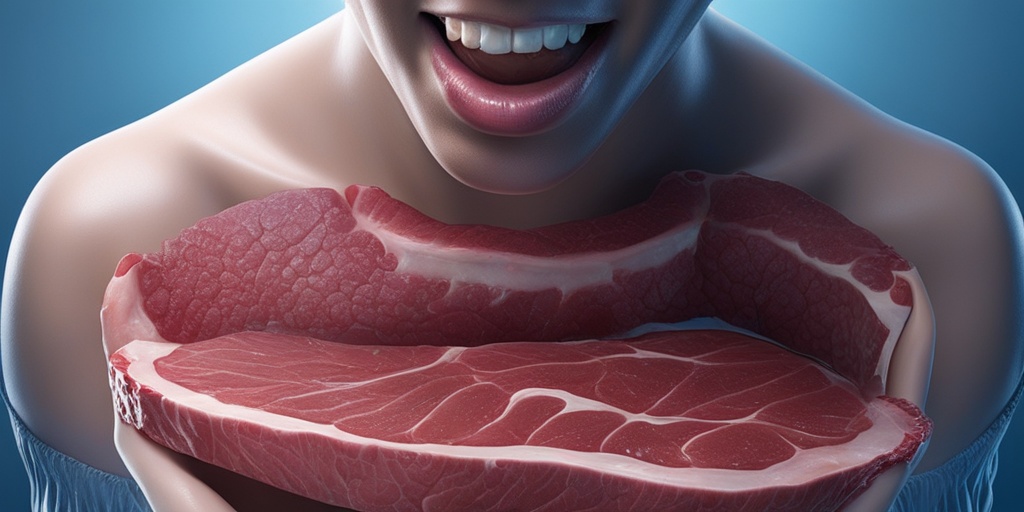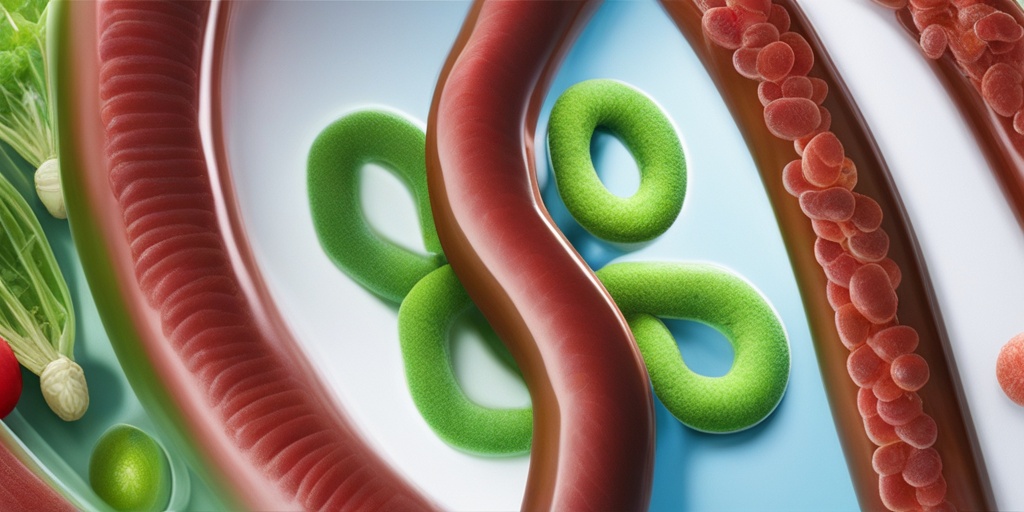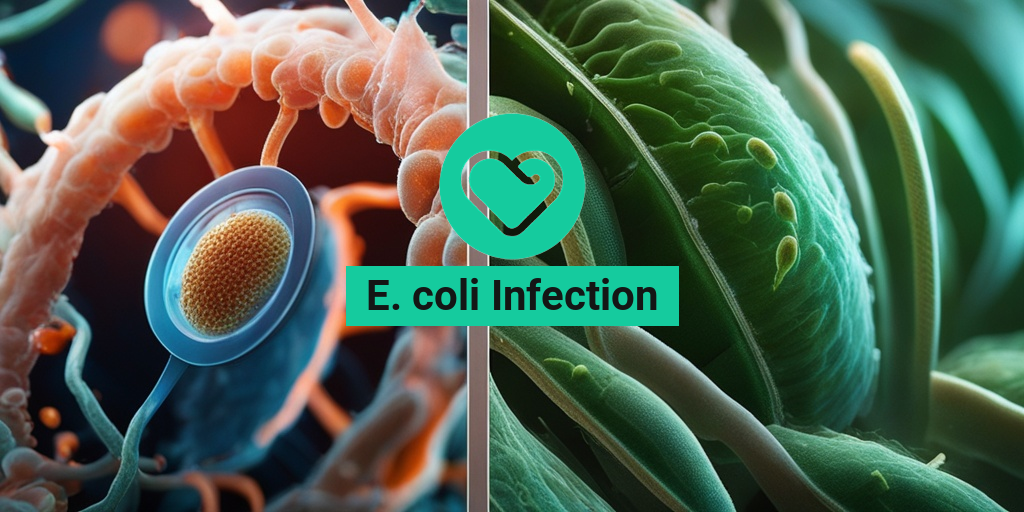What Is E. coli Infection?
E. coli infection, short for Escherichia coli infection, is a type of bacterial infection caused by the E. coli bacterium. This bacterium is commonly found in the environment, food, and the intestines of humans and animals. While most E. coli strains are harmless, some can cause severe illness, especially in people with weakened immune systems, such as the elderly, young children, and those with chronic illnesses.
Symptoms of E. coli Infection
The symptoms of E. coli infection can vary depending on the severity of the infection and the individual’s overall health. Common symptoms include:
- Diarrhea, which may be bloody
- Abdominal cramps
- Fever
- Vomiting
- Fatigue
In severe cases, E. coli infection can lead to life-threatening complications, such as:
- Hemolytic uremic syndrome (HUS), a condition that damages red blood cells and can lead to kidney failure
- Thrombotic thrombocytopenic purpura (TTP), a condition that causes blood clots to form in small blood vessels
E. coli Bacteria: How It Spreads
E. coli bacteria can spread through various routes, including:
Contaminated Food and Water
E. coli can contaminate food and water through:
- Undercooked meat, especially ground beef
- Unpasteurized dairy products
- Contaminated fruits and vegetables
- Untreated water, such as well water or swimming pools
It’s essential to handle and cook food safely to prevent E. coli infection. Wash your hands frequently, especially after using the bathroom or before handling food. Cook meat to the recommended internal temperature, and avoid cross-contaminating utensils and surfaces.
Person-to-Person Contact
E. coli can also spread from person to person through:
- Close contact with someone who has an E. coli infection
- Poor hygiene, such as not washing hands after using the bathroom or before handling food
Practicing good hygiene, such as washing your hands frequently, can help prevent the spread of E. coli infection.
Stay informed about E. coli infection and other health topics with evidence-based answers from Yesil Health AI. Remember, it’s always better to be safe than sorry when it comes to your health! 🙏

E. coli Symptoms in Adults and Children
E. coli infection can manifest differently in adults and children, and it’s essential to recognize the symptoms to seek prompt medical attention. In this section, we’ll delve into the common symptoms of E. coli infection in both adults and children.
Adult Symptoms
In adults, E. coli infection symptoms can range from mild to severe and may include:
- Diarrhea: Watery or bloody stools, which can lead to dehydration if left untreated.
- Abdominal Cramps: Severe stomach pain, often accompanied by vomiting.
- Fever: A high temperature, usually above 101.5°F (38.6°C).
- Nausea and Vomiting: Frequent episodes of vomiting, which can lead to dehydration.
- Bloody Urine: In some cases, E. coli infection can cause blood in the urine.
It’s crucial to note that some adults may experience more severe symptoms, such as:
- Hemolytic Uremic Syndrome (HUS): A life-threatening complication that can cause kidney failure, anemia, and low platelet count.
- Thrombotic Thrombocytopenic Purpura (TTP): A rare but severe condition that can cause blood clots, kidney failure, and neurological symptoms.
Children’s Symptoms
In children, E. coli infection symptoms can be more severe and may include:
- Severe Diarrhea: Frequent, watery stools that can lead to dehydration.
- Vomiting: Frequent episodes of vomiting, which can worsen dehydration.
- Fever: A high temperature, usually above 102°F (39°C).
- Abdominal Pain: Severe stomach pain, which can be accompanied by vomiting.
- Bloody Stools: In some cases, E. coli infection can cause blood in the stools.
Children under the age of 5 are more susceptible to developing HUS, which can lead to kidney failure and other severe complications. It’s essential for parents and caregivers to monitor their child’s symptoms closely and seek medical attention if they notice any of the following:
- Pale or Blue-tinged Skin
- Fatigue or Lethargy
- Decreased Urine Output
- Seizures or Convulsions
E. coli Infection Causes and Risk Factors
E. coli infection can occur through various means, and understanding the causes and risk factors can help prevent the spread of the infection.
Causes of E. coli Infection
E. coli infection can occur through:
- Contaminated Food and Water: Consuming food or water contaminated with E. coli bacteria, such as undercooked meat, raw vegetables, and untreated water.
- Person-to-Person Contact: Direct contact with an infected person, especially in cases where hygiene practices are poor.
- Animal Contact: Coming into contact with animals that carry E. coli bacteria, such as farm animals or pets.
- Environmental Contamination: Exposure to contaminated soil, water, or surfaces.
Risk Factors for E. coli Infection
Certain individuals are more susceptible to E. coli infection, including:
- Young Children: Children under the age of 5 are more prone to developing severe symptoms and complications.
- Older Adults: Adults over the age of 65 are more susceptible to developing severe symptoms and complications.
- Pregnant Women: Pregnant women are more susceptible to developing severe symptoms and complications.
- People with Weakened Immune Systems: Individuals with weakened immune systems, such as those with HIV/AIDS or undergoing chemotherapy, are more susceptible to developing severe symptoms and complications.
- International Travelers: Travelers visiting areas with poor sanitation and hygiene practices are more susceptible to developing E. coli infection.
By understanding the causes and risk factors of E. coli infection, you can take necessary precautions to prevent the spread of the infection and reduce the risk of severe symptoms and complications. 🚽

Complications of E. coli Infection
E. coli infection can lead to various complications, some of which can be life-threatening. It’s essential to seek medical attention immediately if you suspect you or a loved one has contracted an E. coli infection. In this section, we’ll explore some of the potential complications associated with E. coli infection.
Hemolytic Uremic Syndrome (HUS)
Hemolytic Uremic Syndrome (HUS) is a severe complication of E. coli infection. It occurs when the bacteria produce a toxin that damages the lining of blood vessels, leading to the destruction of red blood cells. This can cause kidney failure, which may require dialysis or even a kidney transplant. HUS is more common in children under the age of 5 and older adults.
Urinary Tract Infections (UTIs)
E. coli infection can also lead to Urinary Tract Infections (UTIs), which occur when bacteria enter the urinary tract and cause infection. UTIs can cause symptoms such as burning during urination, frequent urination, and abdominal pain. If left untreated, UTIs can lead to more severe complications, including kidney damage and sepsis.
Sepsis
Sepsis is a life-threatening complication of E. coli infection. It occurs when the body’s response to an infection becomes uncontrolled, leading to widespread inflammation and organ failure. Sepsis can cause symptoms such as fever, chills, rapid heart rate, and shortness of breath. If not treated promptly, sepsis can lead to death.
Other Complications
In addition to HUS, UTIs, and sepsis, E. coli infection can lead to other complications, including:
- Meningitis: an infection of the lining around the brain and spinal cord
- Osteomyelitis: an infection of the bones
- Pneumonia: an infection of the lungs
- Endocarditis: an infection of the heart valves
Diagnosing E. coli Infection
Diagnosing E. coli infection typically involves a combination of physical examination, medical history, and laboratory tests. In this section, we’ll explore the common methods used to diagnose E. coli infection.
Physical Examination
During a physical examination, your healthcare provider will typically check for signs of dehydration, such as dry mouth, dark urine, and decreased urine output. They may also perform a abdominal examination to check for tenderness or pain.
Medical History
Your healthcare provider will ask about your medical history, including:
- Recent travel or exposure to contaminated food or water
- Recent antibiotic use
- Underlying medical conditions, such as kidney disease or cancer
Laboratory Tests
Laboratory tests are used to confirm the diagnosis of E. coli infection. These may include:
- Stool tests: to detect the presence of E. coli bacteria in the stool
- Urine tests: to detect the presence of E. coli bacteria in the urine
- Blood tests: to check for signs of infection, such as elevated white blood cell count
In some cases, your healthcare provider may also perform imaging tests, such as CT scans or ultrasound, to rule out other conditions or complications.
Early diagnosis and treatment are crucial in preventing complications and reducing the risk of long-term health problems. If you suspect you or a loved one has contracted an E. coli infection, seek medical attention immediately. ⏰

Treatment Options for E. coli Infection
When it comes to treating an E. coli infection, the primary goal is to manage symptoms, prevent complications, and support the body’s natural healing process. While antibiotics are often prescribed to combat bacterial infections, they may not be the most effective treatment for E. coli infections. In fact, using antibiotics can sometimes make the infection worse by increasing the risk of hemolytic uremic syndrome (HUS), a potentially life-threatening complication.
Antibiotics: When Are They Necessary?
In some cases, antibiotics may be necessary to treat an E. coli infection, particularly if:
- The infection is severe or life-threatening.
- The individual has a weakened immune system, such as those with HIV/AIDS or undergoing chemotherapy.
- The infection has spread to the bloodstream (sepsis).
In these situations, antibiotics can help reduce the severity of symptoms and prevent complications. However, it’s essential to note that antibiotics will not shorten the duration of the illness or reduce the risk of HUS.
Fluid Replacement and Electrolyte Management
One of the most critical aspects of treating an E. coli infection is replacing lost fluids and electrolytes. This can be achieved through:
- Oral rehydration therapy (ORT) with electrolyte-rich fluids, such as sports drinks or Pedialyte.
- Intravenous fluids in severe cases or for those who cannot tolerate oral fluids.
Fluid replacement helps to prevent dehydration, reduce the risk of kidney failure, and support the body’s natural healing process.
Supportive Care
In addition to fluid replacement and electrolyte management, supportive care is crucial in managing E. coli infection symptoms. This may include:
- Resting and avoiding strenuous activities.
- Managing fever with acetaminophen (Tylenol) or ibuprofen (Advil, Motrin).
- Practicing good hygiene, such as washing hands frequently and thoroughly.
By focusing on supportive care and fluid replacement, individuals can help their bodies recover from an E. coli infection and reduce the risk of complications.
Home Remedies for E. coli Infection
In addition to medical treatment, there are several home remedies that can help alleviate E. coli infection symptoms and support the body’s natural healing process. Keep in mind that these remedies should not replace medical treatment, but rather be used in conjunction with it.
Stay Hydrated
Drinking plenty of fluids is essential in replacing lost electrolytes and preventing dehydration. In addition to ORT, you can try:
- Coconut water: Rich in electrolytes, coconut water can help replenish lost fluids.
- Clear broths: Clear broths, such as chicken or vegetable broth, can provide essential electrolytes and fluids.
💧 Remember to drink plenty of fluids throughout the day to stay hydrated.
Rest and Relaxation
Getting plenty of rest is crucial in helping your body recover from an E. coli infection. Aim for:
- 8-10 hours of sleep per night.
- Resting during the day, if needed.
🛋️ Prioritize rest and relaxation to help your body recover.
Probiotics and Gut Health
Maintaining a healthy gut microbiome is essential in preventing E. coli infections and supporting the body’s natural healing process. Consider:
- Taking a probiotic supplement.
- Incorporating probiotic-rich foods, such as yogurt or kefir, into your diet.
🥛 Support your gut health with probiotics and probiotic-rich foods.
By combining medical treatment with these home remedies, individuals can help alleviate E. coli infection symptoms, support their body’s natural healing process, and reduce the risk of complications.

Frequently Asked Questions about E. coli Infection
What is E. coli Infection?
E. coli infection occurs when the bacterium Escherichia coli (E. coli) enters the body and causes illness. E. coli is commonly found in the environment, food, and the intestines of humans and animals.
What are the Causes of E. coli Infection?
E. coli infection can occur through:
- Contaminated food and water
- Unhygienic handling and preparation of food
- Close contact with infected people or animals
- Swimming in contaminated water
What are the Symptoms of E. coli Infection?
The symptoms of E. coli infection may include:
- Diarrhea (often bloody)
- Abdominal cramps
- Fever
- Vomiting
- Fatigue
How is E. coli Infection Diagnosed?
E. coli infection is diagnosed through:
- Stool tests to detect the presence of E. coli
- Urine tests to detect the presence of E. coli in the urinary tract
- Blood tests to detect the presence of E. coli in the bloodstream
How is E. coli Infection Treated?
Treatment for E. coli infection typically involves:
- Fluid replacement to prevent dehydration
- Antibiotics to treat severe cases
- Supportive care to manage symptoms
Can E. coli Infection be Prevented?
Yes, E. coli infection can be prevented by:
- Washing hands regularly
- Avoiding undercooked meat and raw vegetables
- Avoiding contaminated water
- Practicing good hygiene
What are the Complications of E. coli Infection?
Complications of E. coli infection may include:
- Hemolytic uremic syndrome (HUS)
- Kidney failure
- Septicemia
- Meningitis
Is E. coli Infection Contagious?
Yes, E. coli infection is contagious and can be spread through:
- Close contact with infected people
- Contaminated food and water
- Unhygienic handling and preparation of food
How Long Does E. coli Infection Last?
The duration of E. coli infection varies from person to person, but most people recover within:
- 5-10 days
Can E. coli Infection Recur?
Yes, E. coli infection can recur if:
- Proper hygiene practices are not followed
- Contaminated food and water are consumed
- Close contact with infected people or animals is maintained
I hope this FAQ section helps answer some of the most common questions about E. coli infection! 🤕




